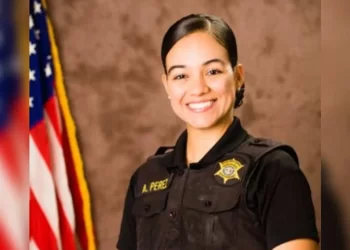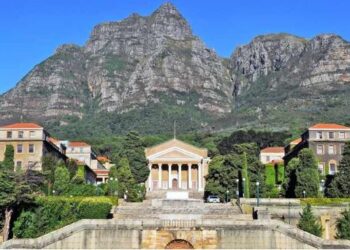
The Hulu documentary “Freaknik: The Wildest Party Never Told” chronicles the rise and fall of the infamous Atlanta street party that took place every Memorial Day weekend from 1988 to 1996. The documentary features interviews with key figures from the Freaknik era, including party promoters, artists, and attendees, as well as rare footage of the event itself.
Freaknik began as a small gathering of students from historically Black colleges and universities (HBCUs) in Atlanta. Over time, the event grew into a massive block party that attracted hundreds of thousands of people from all over the country. Freaknik was known for its wild costumes, loud music, and festive atmosphere. However, the event was also marred by crime and violence, which eventually led to its demise.
The “Freaknik: The Wildest Party Never Told” documentary is a fascinating and important look at a unique cultural phenomenon. The film does a great job of capturing the excitement and energy of Freaknik, as well as the challenges that the event faced. The documentary is also a must-watch for anyone interested in the history of Atlanta and the Black American experience.
“Freaknik: The Wildest Party Never Told” is a documentary that recounts the rise and fall of a small Atlanta HBCU picnic that exploded into an influential street party and spotlighted ATL as a major cultural stage. In this blog post, we will explore various aspects of this event.
What is Freaknik?
Freaknik was an annual street party that took place in Atlanta, Georgia, during the Memorial Day weekend. It began in the early 1990s as a picnic for students from historically black colleges and universities (HBCUs), but it quickly grew into a massive event that attracted people from all over the country. Freaknik was known for its wild parties, elaborate costumes, and controversial behavior.
The Freaknik documentary
In 2023, Hulu released a documentary about Freaknik called “Freaknik: The Wildest Party Never Told.” The documentary chronicles the rise and fall of Freaknik, and it features interviews with key figures from the era, including artists, promoters, and attendees.
What does the documentary cover?
The Freaknik documentary covers a wide range of topics, including:
- The origins of Freaknik
- The rise of Freaknik as a major cultural event
- The controversial aspects of Freaknik
- The decline of Freaknik in the late 1990s
- The legacy of Freaknik
Why is the documentary important?
The Freaknik documentary is important because it tells the story of a unique and influential event in African American culture. Freaknik was a time when young black people could come together to celebrate their culture and express themselves freely. The documentary also provides a valuable perspective on the social and political climate of the 1990s.
Who should watch the documentary?
The Freaknik documentary is a must-watch for anyone interested in African American culture, history, and music. It is also a good watch for anyone who is curious about the 1990s and the unique cultural phenomena that emerged during that time period.
History and Significance
The Freaknik festival was an annual spring break event held in Atlanta, Georgia, from the mid-1980s to the late 1990s. It started as a small gathering of students from historically black colleges and universities (HBCUs) but quickly grew into a massive celebration that attracted people from all over the country. Freaknik became known for its vibrant music, dance, and party culture, making it an important part of Atlanta’s cultural history.
The Rise of Freaknik
Freaknik gained popularity through word-of-mouth and became an unofficial celebration of black culture and music. It provided a platform for emerging artists and musicians to showcase their talent. The festival featured live performances from renowned hip-hop artists, DJs, and local talent. Freaknik became synonymous with freedom, self-expression, and unity among young African Americans.
The Fall of Freaknik
As Freaknik grew in size and popularity, it faced numerous challenges. Concerns about public safety, traffic congestion, and unruly behavior led to increased scrutiny from city officials and law enforcement agencies. In 1999, the city of Atlanta decided to crack down on the festival by implementing stricter regulations and road closures. These measures significantly reduced attendance in subsequent years, eventually leading to the discontinuation of Freaknik.
Legacy and Cultural Impact
Despite its controversial end, Freaknik left a lasting impact on Atlanta’s cultural landscape. It showcased the city’s vibrant music scene and provided a platform for emerging artists to gain recognition. Freaknik also played a significant role in shaping the hip-hop culture of the 1990s by influencing fashion trends, dance styles, and music genres.
Frequently Asked Questions (FAQs)
Q: When was Freaknik held?
A: Freaknik was an annual spring break event held in Atlanta, Georgia, from the mid-1980s to the late 1990s.
Q: What led to the decline of Freaknik?
A: Concerns about public safety, traffic congestion, and unruly behavior led to increased scrutiny from city officials and law enforcement agencies. Stricter regulations and road closures implemented by the city of Atlanta significantly reduced attendance in subsequent years.
Q: What was the cultural impact of Freaknik?
A: Freaknik played a significant role in shaping Atlanta’s music scene and influencing fashion trends, dance styles, and music genres of the 1990s.
Q: What is Freaknik?
A: Freaknik was a massive street party that took place in Atlanta every Memorial Day weekend from 1988 to 1996. The event was known for its wild costumes, loud music, and festive atmosphere.
Q: Why was Freaknik so popular?
A: Freaknik was popular for a number of reasons. It was a chance for young Black people to come together and celebrate their culture. It was also a chance to escape the everyday stresses of life and have some fun.
Q: Why did Freaknik end?
A: Freaknik ended in 1996 due to a number of factors, including crime, violence, and traffic congestion. The city of Atlanta also began to crack down on the event, making it difficult for organizers to obtain permits.
Q: Who is in the “Freaknik: The Wildest Party Never Told” documentary?
A: The “Freaknik: The Wildest Party Never Told” documentary features interviews with a number of key figures from the Freaknik era, including party promoters, artists, and attendees. Some of the notable names in the documentary include Jermaine Dupri, Uncle Luke, and Lil Kim.
Q: Where can I watch the “Freaknik: The Wildest Party Never Told” documentary?
A: The “Freaknik: The Wildest Party Never Told” documentary is available to stream on Hulu.
Q: What is the release date of the Freaknik documentary?
A: The Freaknik documentary was released on Hulu on March 3, 2023.
Q: Who is the director of the Freaknik documentary?
A: The Freaknik documentary was directed by Ryan Coogler, the director of films such as Black Panther and Creed.
Q: Who are some of the people interviewed in the documentary?
A: Some of the people interviewed in the Freaknik documentary include:
- Jermaine Dupri
- Uncle Luke
- T.I.
- Killer Mike
- Big Boi
- Goodie Mob
- Lil Scrappy
Q: What is the critical reception of the documentary?
A: The Freaknik documentary has received positive reviews from critics. It has been praised for its honest portrayal of Freaknik and its cultural significance.
Q: When was Freaknik?
A: Freaknik took place annually in Atlanta, Georgia from 1987 to 1996.
Q: What was Freaknik like?
A: Freaknik was known for its wild and over-the-top atmosphere, which often included elaborate costumes, loud music, and dancing in the streets.
Q: Who is in the Freaknik documentary?
A: The Freaknik documentary features interviews with key figures from the Freaknik era, including students, promoters, and residents of Atlanta. It also includes rare archival footage of the festival in its prime.
Q: Where can I watch the Freaknik documentary?
A: The Freaknik documentary is available to stream on Hulu.
Conclusion
The Freaknik documentary is a well-made and informative film that tells the story of a unique and influential event in African American culture. It is a must-watch for anyone interested in African American culture, history, and music.

























